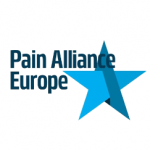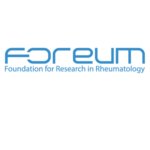 We all know that MSK is one of the two biggest causes of sickness absence in the UK. It’s perhaps no surprise that this is even more true in the construction sector. Every year, occupational ill‐health costs construction employers £848million in reduced productivity, sick pay, cover for absence and replacing staff who leave because of ill health. 76% of this relates to MSK conditions. In February, ARMA brought together some key players in the construction sector with stakeholders such as Department for Work and Pensions and Health and Safety Executive, to look at what might be done to improve this situation.…
We all know that MSK is one of the two biggest causes of sickness absence in the UK. It’s perhaps no surprise that this is even more true in the construction sector. Every year, occupational ill‐health costs construction employers £848million in reduced productivity, sick pay, cover for absence and replacing staff who leave because of ill health. 76% of this relates to MSK conditions. In February, ARMA brought together some key players in the construction sector with stakeholders such as Department for Work and Pensions and Health and Safety Executive, to look at what might be done to improve this situation.…
Read more of this article
Author: Garreth
Prevention green paper
 The process of developing the green paper promised by Government has just begun with a consultation meeting involving a range of health charities, including ARMA. It seems clear that MSK conditions will be included, but ARMA, with our members, will work with the Department to help shape what that looks like in the final Green Paper.
The process of developing the green paper promised by Government has just begun with a consultation meeting involving a range of health charities, including ARMA. It seems clear that MSK conditions will be included, but ARMA, with our members, will work with the Department to help shape what that looks like in the final Green Paper.
The Green Paper was promised when the government published Prevention is Better than Cure last November. The goal remains to improve healthy life expectancy by at least 5 extra years, by 2035, and to close the gap between the richest and poorest.…
Read more of this article
How to integrate mental and physical healthcare for long term musculoskeletal conditions
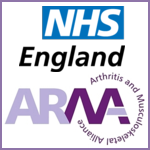 Friday 29 March 2019, 3:00pm
Friday 29 March 2019, 3:00pm
The importance of integrating psychosocial care into the treatment of long term musculoskeletal conditions is well established. What would this look like in practice? Using the example of the 3 Dimensions for Long Term Conditions service at King’s Health Partners this webinar will cover why and how to provide and effective integrated service which benefits patients and works for clinicians. The 3 dimensions service is not an MSK service, but the approach would work equally well in supporting people with MSK conditions.…
Read more of this article
Universal Personalised Care – a summary
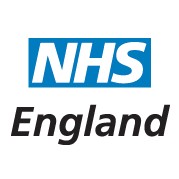 Since the NHS Long Term Plan (LTP) was published on 7 January 2019, the Universal Personalised Care: Implementing the Comprehensive Model has been published.
Since the NHS Long Term Plan (LTP) was published on 7 January 2019, the Universal Personalised Care: Implementing the Comprehensive Model has been published.
The document defines personalised care: people have choice and control over the way their care is planned and delivered based on ‘what matters’ to them and their individual strengths, needs and preferences.
There are six components to the model:
- Shared decision making
- Personalised care and support planning
- Enabling choice, including legal rights to choice
- Social prescribing and community-based support
- Supported self-management
- Personal health budgets and integrated personal budgets.
Read more of this article
MSK Core Offer
 ARMA has welcomed the inclusion of references to MSK in the NHS Long Term Plan. The real challenge is how to implement this in the local NHS plans. ARMA has set out the “core offer” of MSK services and support which need to be implemented locally if the ambition of the long term plan is to be realised.
ARMA has welcomed the inclusion of references to MSK in the NHS Long Term Plan. The real challenge is how to implement this in the local NHS plans. ARMA has set out the “core offer” of MSK services and support which need to be implemented locally if the ambition of the long term plan is to be realised.
The NHS plan states: “Longer-term health conditions also make an increasing contribution to the overall burden of disease. Mental health, respiratory and musculoskeletal conditions are responsible for a substantial amount of poor health and place a substantial burden on the NHS and other care services.”…
Read more of this article
BMJD World Congress 2019
 The 7th World Congress on Controversies, Debates & Consensus in Bone, Muscle & Joint Diseases (BMJD) will take place October 17-19, 2019 in Taipei, Taiwan.
The 7th World Congress on Controversies, Debates & Consensus in Bone, Muscle & Joint Diseases (BMJD) will take place October 17-19, 2019 in Taipei, Taiwan.
This is your chance to interact with international experts from all areas of rheumatology in one place.
The BMJD aims to reach consensus on controversial issues through debates and expert opinion, and provide updates on major topics of interest for your practice.
BMJD is a comprehensive Congress fully devoted to clinical controversies in bone, muscle and joint Diseases.
New Webinar: Managing child bearing with chronic MSK disease
Managing women of child bearing potential living with chronic inflammatory rheumatic disease
Wednesday 3 April 2019, 2.30pm-3.30pm
This webinar will cover why it is important to appropriately plan a patient’s pregnancy journey, to minimise disease activity to ensure an optimal outcome for mother and baby, and how healthcare professionals can ensure they initiate conversations around family planning at an early stage.
Disease onset for patients living with chronic inflammatory disease (RA, PSA, axSpA and PSO), tends to overlap with peak female reproductive ages.…
Read more of this article
Guest blog: How your local pharmacy can help
 by Leyla Hannbeck, Director of Pharmacy at NPA
by Leyla Hannbeck, Director of Pharmacy at NPA
People living with musculoskeletal conditions are often taking several prescribed and over-the-counter medicines, so come into frequent contact with their local pharmacist. For example, someone with arthritis may be taking Co-Codamol for pain relief, patches for heat therapy and amitriptyline for depression. (ARMA’s policy paper on mental health is a cogent reminder about the complex interplay of mental and physical conditions).
But even frequent visitors to pharmacies may not be aware of the full range of NHS services available there.…
Read more of this article
Stigma and pain – new survey
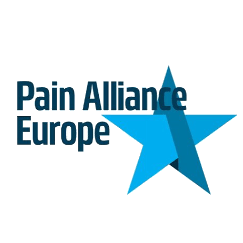 Pain Alliance Europe launched a new survey on stigma and chronic pain. One of the main “fights” PAE is leading is for the pain patient to be heard, believed and understood. The most recent survey developed deals with stigma related to chronic pain and will be open until the 1st of March, 2019.
Pain Alliance Europe launched a new survey on stigma and chronic pain. One of the main “fights” PAE is leading is for the pain patient to be heard, believed and understood. The most recent survey developed deals with stigma related to chronic pain and will be open until the 1st of March, 2019.
Besides the many physical challenges that chronic pain inflicts, patients deal with the psychological burden of having a condition they do not deliberately choose to have.
To understand better to which extent stigma is a part of the illness pack in the life of a chronic pain patient, Pain Alliance Europe has directed its questions for 2019’s survey about chronic pain to the way patients perceive and are affected by the subjectivity of other categories from society that they come in contact with during their pain journey.…
Read more of this article
Open Call for Innovative Medicine
 FOREUM – Foundation for Research in Rheumatology – announces a programme to support innovative concepts to improve the diagnosis and treatment of Rheumatic Musculoskeletal Diseases (RMDs). This programme is designed as an open research call seeking for the best and most visionary approaches to better understand RMDs and to improve the life of patients with RMDs.
FOREUM – Foundation for Research in Rheumatology – announces a programme to support innovative concepts to improve the diagnosis and treatment of Rheumatic Musculoskeletal Diseases (RMDs). This programme is designed as an open research call seeking for the best and most visionary approaches to better understand RMDs and to improve the life of patients with RMDs.
As such, the call is not limited to a specific disease within the RMD spectrum but rather intends to target fundamentally new concepts that have potential to gain concept-changing insights into RMDs.…
Read more of this article







